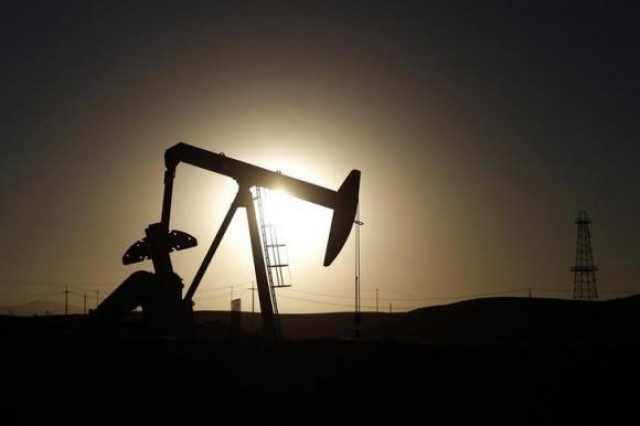Oil prices rise after Saudi King's death
US benchmark West Texas Intermediate (WTI) for delivery in March climbed 60 cents to $46.91 a barrel

"As we are uncertain of how the new king would react to the current supply glut, we believe that the market is pricing in this uncertainty causing prices to spike," said Daniel Ang, an investment analyst. PHOTO: REUTERS
US benchmark West Texas Intermediate (WTI) for delivery in March climbed 60 cents to $46.91 a barrel compared with Thursday's close.
Brent North Sea crude for March rallied $1.03 to stand at $49.55 a barrel in London midday deals.
"As we are uncertain of how the new king would react to the current supply glut, we believe that the market is pricing in this uncertainty causing prices to spike," said Daniel Ang, an investment analyst with broker Phillip Futures.
"However, this premium would likely only persist temporarily. This premium should wear off once the market is clear of the new king's view on the oil situation."
The chief economist of the International Energy Agency said Friday there would be no "significant" changes to Saudi oil policy following the death of King Abdullah.
"With the death of the king, with the changes (in government), I do not expect any significant change in the oil policy of Saudi Arabia and I expect and hope that they will continue to be a stabilisation factor in the oil markets," Fatih Birol told AFP on the sidelines of the World Economic Forum in Davos.
"I hope they will continue to contribute to the stability of the oil markets... especially in these days where we are going through difficult days," he added.
The elderly King Abdullah died earlier Friday and was replaced by his half-brother Salman as the absolute ruler of the world's top oil exporter and the spiritual home of Islam.
As the top producer in the Organization of Petroleum Exporting Countries, Saudi Arabia has been the driving force behind the cartel's refusal to slash output to support oil prices, which have collapsed by more than 50 percent since June.
Analysts said the focus would now turn to whether Salman, 79, keeps Ali al-Naimi as the country's oil minister -- a position he has held since 1995.
"This is OPEC's biggest producer we are talking about here," said David Lennox, a resource analyst at Fat Prophets in Sydney.
"People will want to know more about the intentions of the successor to the throne," he told AFP.
Saudi Arabia has rejected calls from some of OPEC's 12 members to slash output, preferring instead to lower prices in a bid to gain market share.
The cartel is facing a growing challenge from the United States, where booming shale oil production has flooded the market with supplies and reduced demand for imports from the world's top crude consumer.
Oil prices had tumbled on Thursday after news the European Central Bank launched a vast bond-buying programme aimed at kickstarting the eurozone economy.
The news pushed down the euro, making dollar-priced oil relatively more expensive



















COMMENTS
Comments are moderated and generally will be posted if they are on-topic and not abusive.
For more information, please see our Comments FAQ